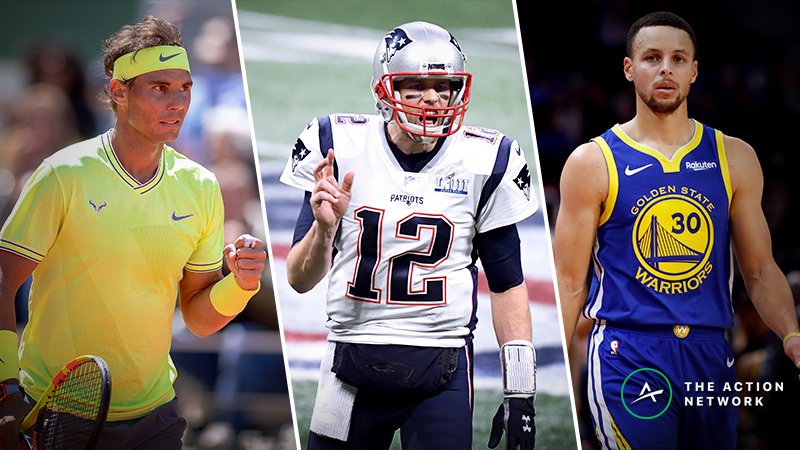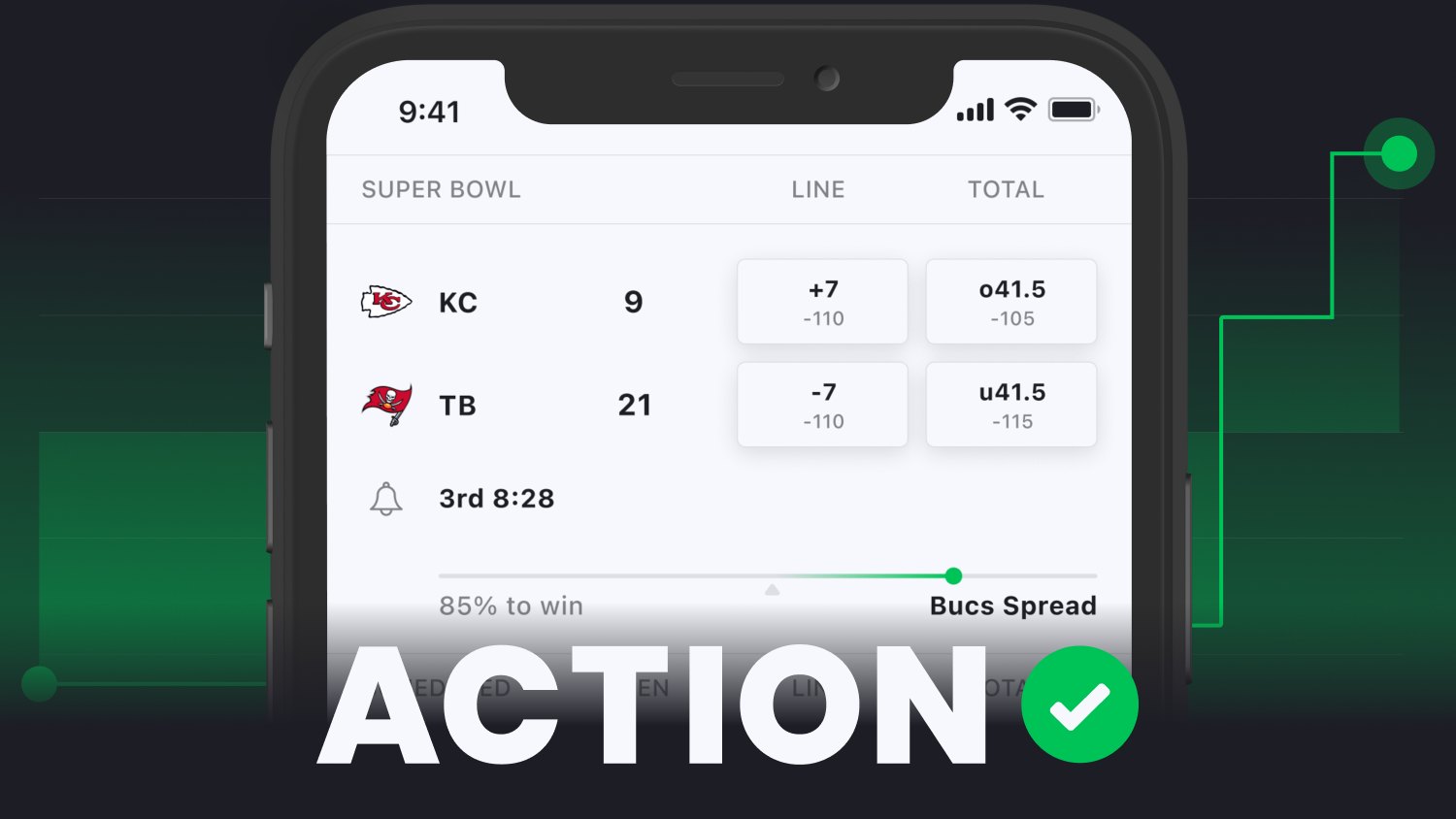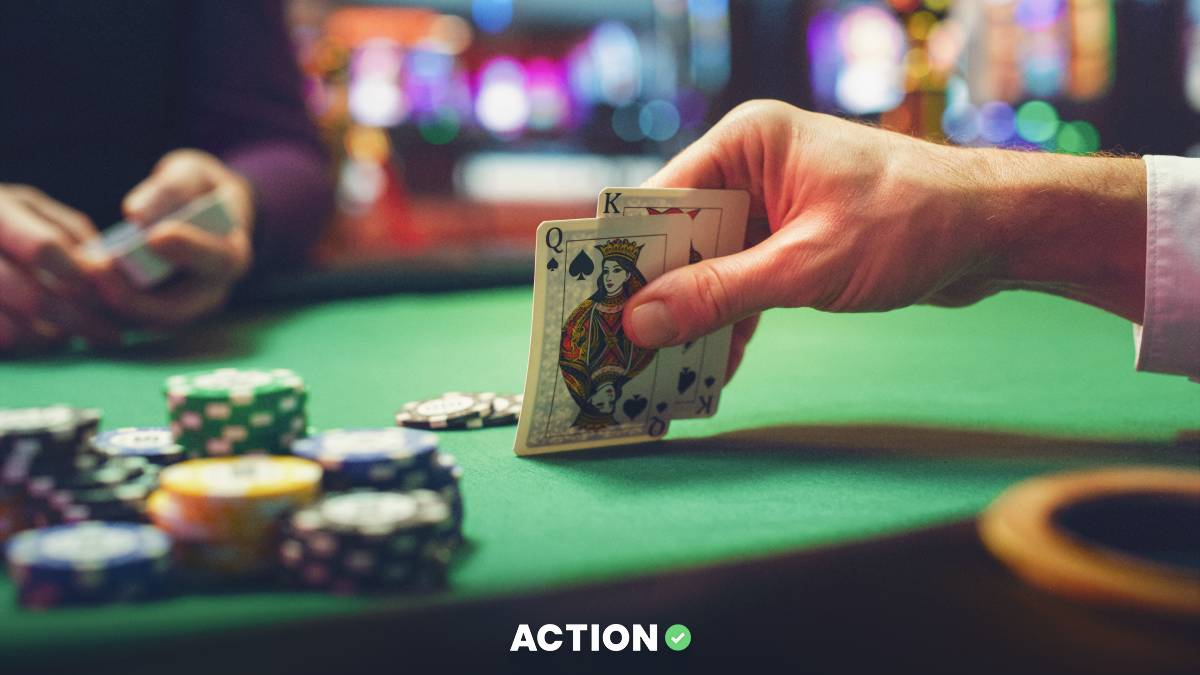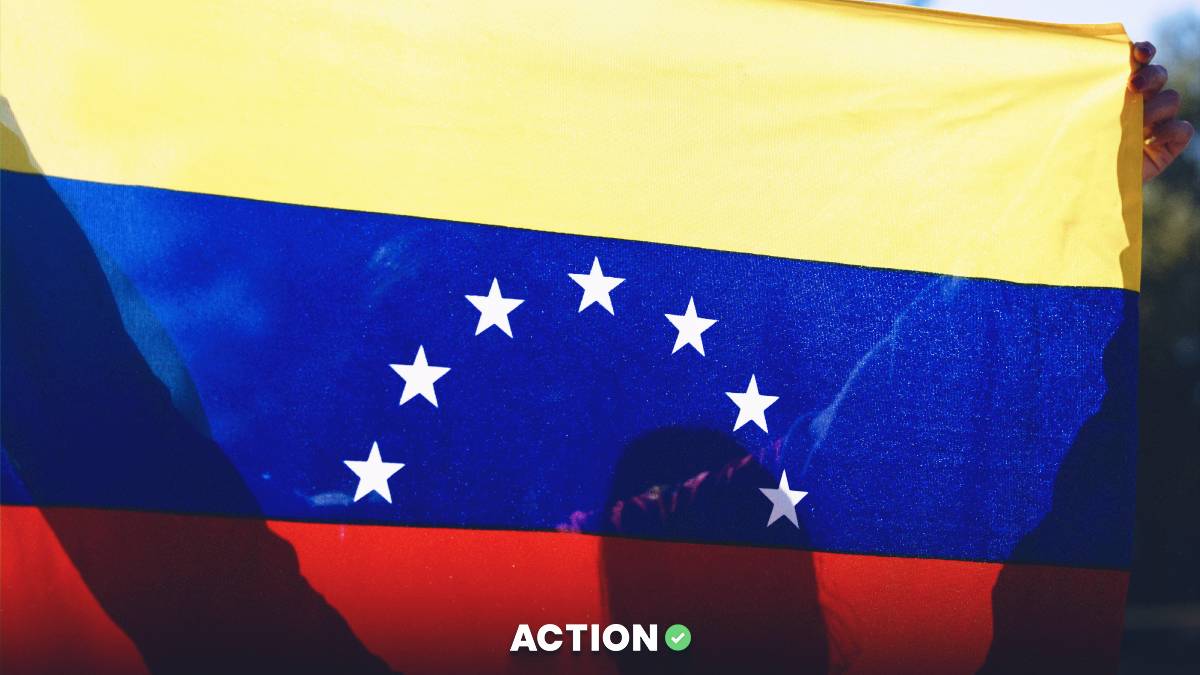- How often does the favorite win in the NBA vs. the NFL? What about in tennis? Golf?
- Below I use historical betting data to answer once and for all one of the most popular debates: Which sport has the most parity?
You've probably heard it from some of your friends who are casual sports fans:
What's the point in watching the NBA? The Warriors always win.
The Patriots again? Yawn.
Another Alabama or Clemson college football title. Surprise, surprise.
Parity is an interesting topic in sports at large. People complain about dynasties, but they assuredly increase viewership. They create villains, and the battle of hero vs. villain or David vs. Goliath is something that has captivated humanity since the dawn of time.
But how much parity is there really? Is Goliath indeed victorious more often than not? It seems the Warriors or Patriots or insert other preseason title favorites often win the championship, but is that really true? Of the major sports in the world, which have the most parity? In other words, which sports are the most top-heavy?
We can view this thankfully through the lens of a market — the betting market, which sets preseason title odds on every major sport. According to that data — which I have going back to 1990 for the professional U.S. sports and about 10 years for the others — if you want to complain about parity, the sport that you should direct your ire towards is men's tennis.
Note: The graph below shows the average preseason (or pre-tournament) odds for the winner. For example, the winner of the Men's French Open in tennis has on average had odds of +105. Those winners have been on average ranked 1.6 in the field in terms of odds to win.
Which major sport/event is the most predictable?
According to historical betting futures data, the most predictable event has been the Men's French Open. Since 2009, the winner going into the tournament had an average implied probability to win of 48.7% — nearly even money.
In that span, the pre-tournament favorite has won the event an incredible eight of the 11 times. In all of those instances, the winner was an odds-on favorite, which means they came with minus odds.
Stanislas Wawrinka in 2015 was the most recent underdog to win at 25-1 odds, but even he ranked sixth in the field before the tournament. The number was so large simply because Nadal, Federer and Djokovic command such low odds, but he was not exactly a true "longshot." Since 2009, either the favorite or second-favorite has won every tournament except 2015.
Note that for sports like tennis and golf, I'm looking at only majors. That's simply because of available data. For many of the other regular-season tournaments, some have historically been more predictable while others have been less predictable.
Of the major professional U.S. sports — the NBA, NFL, MLB and NHL — those who think the NBA is most predictable are correct. Since 1990, the average NBA champion has had preseason odds of +320, and that's including the most recent NBA Finals, which the Toronto Raptors won at 18.5-1 odds.
The other three sports have been very close in predictability over the last three decades, with the winner averaging about 9-1 odds before the season.
Golf is obviously the least predictable sport given the variance, number of talented players and huge fields within majors. Of the major sports or events, the U.S. Open has historically featured the lowest average implied probability of the winner entering Round 1, with those golfers typically set at 13-1 odds.
Note, however, that the non-Masters golf majors have all had several winners who didn't have individual odds. They were officially part of the field bet, but I didn't assign them odds in this study since it wouldn't have been representative.
I did rank them all 100th in the field, so you can see that the Masters has actually been the most predictive golf major, at least in terms of odds rank of the winner.
Biggest Underdogs to Win
Of all the sports listed above, given the data available from SportsOddsHistory, here are the biggest underdogs to win recently:
1. 2016 Leicester City: +500000 odds (bettor would win $500,000 on $100 bet)
2. 2010 British Open, Louis Oosthuizen: +20000 (win $20,000 on $100 bet)
T3. 1999 St. Louis Rams: +15000 (win $15,000 on $100 bet)
T3. 2008 Masters, Trevor Immelman: +15000
T3. 2009 U.S. Open (golf), Lucas Glover: +15000
T3. 2011 PGA Championship, Keegan Bradley: +15000
T3. 2011 British Open, Darren Clarke: +15000
T3. 2015 Women's U.S. Open (tennis), Flavia Pennetta: +15000
T9. 2007 Masters, Zach Johnson: +12500 (win $12,500 on $100 bet)
T9. 2009 Masters, Angel Cabrera: +12500
T9. 2009 PGA Championship, YE Yang: +12500
T9. 2009 British Open, Stewart Cink: +12500
T9. 2016 PGA Championship, Jimmy Walker: +12500
Biggest Favorites to Win
And the biggest favorites …
1. 2018 French Open, Rafael Nadal: -255 odds (bettor would win $39 on $100 bet)
2. 2010 French Open, Rafael Nadal: -250 odds (win $40 on $100 bet)
3. 2018 Golden State Warriors: -187 odds (win $54 on $100 bet)
T4. 2012 French Open, Rafael Nadal: -150 odds (win $67 on $100 bet)
T4. 2013 French Open, Rafael Nadal: -150 odds (win $67 on $100 bet)
T4. 2019 Manchester City: -150 odds (win $67 on $100 bet)
7. 2016 Australian Open, Novak Djokovic: -145 odds (win $69 on $100 bet)
8. 2013 Women's U.S. Open (tennis), Serena Williams: -143 odds (win $70 on $100 bet)
9. 2009 Wimbledon, Roger Federer: -137 odds (win $73 on $100 bet)
10. 2013 Women's French Open, Serena Williams: -133 odds (win $75 on $100 bet)




















































